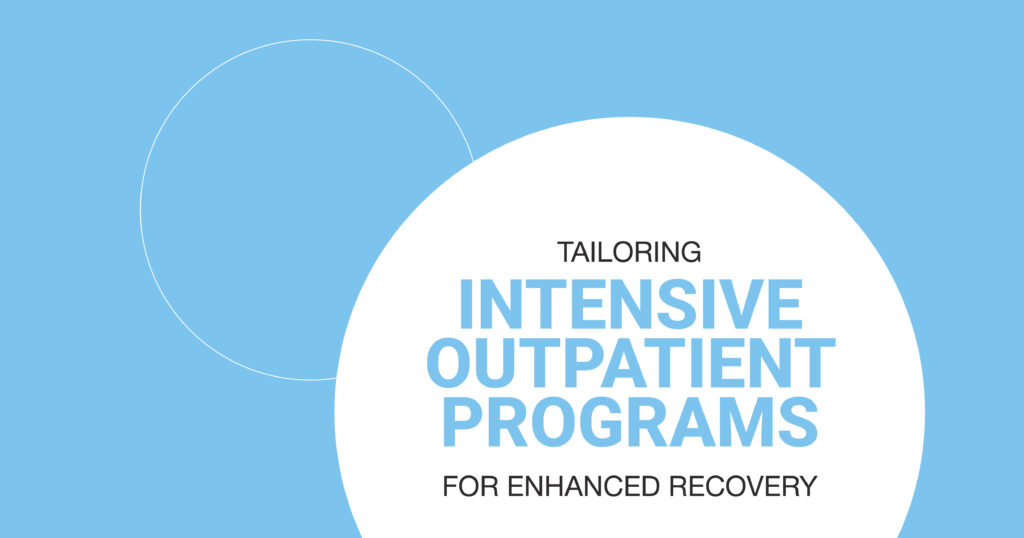The process of recovery is not universal. To most, the gap between crisis and complete reintegration exists somewhere between flexibility and structure. Healing occurs in an outpatient paradigm that sustains life. Jump into the realm of intensive outpatient treatment, where a combination of free-form addiction treatment and mental health treatment exists within a customized, transitional setting. This blog discusses the implementation of outpatient rehab in terms of behavioral health services, group therapy, evidence-based strategies, a personalized plan, and community support that helps you achieve long-term wellness.
Understanding the Role of Outpatient Rehab in Substance Abuse Treatment
Outpatient rehab is a type of treatment in which the person lives at home (or in a sober-living environment) and visits therapy, counselling, or medical services a few times per week, as opposed to spending full-time in a residential facility. This is because these programs can enable you to do so even though you are keeping up with work, family, or education, in addition to dealing with substance use and mental health. The intensive outpatient programs (IOPs) provide more structure than standard outpatient services; more hours, sessions, and support.
Treatment statistics show that standard outpatient programs are between 43 and 60 percent, and IOPs are between 50 and 52 percent, indicating that the added intensity makes a measurable difference.
The reason why outpatient rehab is an important channel to addiction recovery is that it reaches people at the point of their need: full healing is attained to the extent that they are not taken out of their life duties.
Integrating Behavioral Health Services in Addiction Recovery
Curing drug and alcohol addiction usually comes with curing the mental illness that goes hand in hand with it, the trauma, and the habitual coping mechanisms that are no longer effective. Behavioral health services, including individual therapy, psychiatric assessment, and medication management, as well as support for underlying mental-health disorders, are required.
With the incorporation of these services into an intensive outpatient program, you do not only treat the addiction, but the entire person: the brain, the body, the environment, and the feeling. This combination contributes to the minimization of the risk of relapse, mental well-being, and more effective maintenance of sobriety.
The Benefits of Group Therapy Sessions for Sustained Sobriety
A potent tool of any outpatient program is group therapy. Group sessions are an addition of depth, accountability, empathy, and peer learning to your journey in every group session you participate in, as you interact with other like-minded individuals going through similar struggles.

Benefits include:
- Shared experience: Coming to realize that you are not alone.
- Peer accountability: Having other people applaud you, keeping watch on your improvement.
- Role-modeling: It is what we can see that has already passed as far along the way, and understand what it is like.
Implementing Evidence-Based Therapy in Mental Health and Addiction Treatment
Evidence-based therapy cannot be compromised when you are designing a program on enhanced recovery. It implies applying treatment techniques that have been tested: cognitive behavioral therapy (CBT), motivational interviewing (MI), dialectical behavior therapy (DBT), contingency management therapy, and trauma-informed therapy. These evidence-based interventions can be measured in terms of their impact on addiction recovery and mental health.
Within an outpatient environment, it is wise to include evidence-based treatment so that your time, energy, and dedication lead to meaningful change, rather than activity.
An Overview of the Partial Hospitalization Program for Recovery
To others, the level of intensity is more than that of ordinary outpatient care and lower than actual inpatient care. A partial hospitalization program (PHP) occupies that intermediate: patients spend a substantial number of hours per week in organized care (typically, 20-30 hours) but go home at night.
PHPs frequently utilize individuals who are about to leave inpatient care or require a greater degree of organization compared to outpatient care. They can be a significant component of the levels of care spectrum when customized and constitute an important component of the intensive outpatient programs.
How Behavioral Health Services Enhance Mental Well-Being During Rehab
The behavioral health services portion of PHP/IOP makes sure that mental wellness is not marginalized. The problem you are dealing with, as the addiction is also anxiety, depression, trauma, identity, and lifestyle. Incorporating behavioral health testing, psychiatric treatment, and psychotherapy is the way to make sure the foundation is laid. When one is in good mental health, the healing is enhanced, one is resilient, and there is reduced risk of relapse.
The Importance of Community Support in Group Therapy Sessions
The secret sauce to recovery is community. When you sit in a group, you are part of a group of people who are handling similar stories and coping methods and seeing each other change. Such a common experience increases motivation, alleviates alienation, and fosters a culture of hope. Studies indicate that there is a better outcome when the participants are subjected to peer support and community-based recovery capital.
The community is not only in the room but also outside it, with group homework, peer check-ins, community meetings, and alumni involvement within an outpatient program. That is what makes short-term treatment a long-term change.
Intensive Outpatient Programs at a Glance
Each healing process is unique, however, order and versatility are the core of improvement. Intensive outpatient programs unite therapy, responsibility, and balance in a manner perceived to be sustainable. These programs usually involve the following:
| Feature | Typical Structure | Why It Matters |
| Frequency & Intensity | 9-20 hours/week (other programs 20+ hours) | Offers sufficient structure to make a difference, and yet allows you to live at home. |
| Flexibility | Meetings will be held during mornings, evenings, or weekends. | Let’s you keep work, education, or family routines alive while recovering. |
| Therapy Mix | Personal and group combined with educational workshops. | Addicts, mental health, coping, and relapse prevention. |
| Behavioral Health Integration | Psychiatric care, drug use where necessary, and treatment of comorbid disorders. | Addresses the entire continuum of wellness- not only substance use. |
| Aftercare & Community Support | Peer groups, alumni, follow-up sessions | Enhances long-term sobriety and reduces relapse risk. |
Creating Personalized Treatment Plans for Long-Term Sobriety
Any two pathways are not similar, and one of the characteristics of good intensive outpatient programs is customization. An effective treatment plan entails:
- Substance use, mental health, physical health, and social environment assessment.
- Individual, group, behavioral, and holistic therapy mix.
- Fit to your life (so that you can continue working/school/family).
- Holistic factors: nutrition, physical exercise, mindfulness, stress.
- Aftercare and maintenance plan: what happens when the formal program is over.
Combining Mental Health Therapy with Holistic Healing Practices
Holistic healing is not an option, it adds value to the healing center. Mindfulness practices, yoga, nutritional counseling, creative expression, physical fitness, and community activities will enrich your outpatient care program. The practices enhance emotional resilience, mental health, stress reduction, and a healthier post-treatment life.
Begin Your Recovery Journey with Clear Mind Treatment
When you are willing to dedicate yourself to improved healing, including intensive outpatient care, behavioral health care, group assistance, evidence-based care, and individualized strategies, consider contacting Clear Mind Treatment. Their group is an expert in navigating people in this intermediate healing and integration zone. Recovery does not imply in or out, it can imply in-care, engagement, support, and growth.

FAQs
What is the difference between outpatient rehab and inpatient rehab in substance abuse treatment?
Inpatient rehab demands that you complete the treatment center on a full-time basis (usually in a residential place), which provides 24/7 care and organization. Outpatient rehab (with intensive outpatient programs) gives you more flexibility because you can live at home or resume it and attend scheduled treatment sessions, but more self-management is required.
How do behavioral health services support addiction recovery and mental well-being?
Behavioral health services would treat underlying mental health disorders (such as depression, anxiety, trauma), which commonly go hand-in-hand with addiction and include therapy, psychiatric care, and tactics that enhance mental health and lower relapse potential.
Why are group therapy sessions crucial for maintaining long-term sobriety?
Group therapy creates a sense of connection, support, experience, and responsibility, which are some of the main components of a lasting recovery. Studies indicate that good peer support increases the success of completion of treatment.
What are the key components of evidence-based therapy in mental health and addiction treatment?
Some of the elements are structured methods such as CBT, motivational interviewing, DBT, relapse-prevention methods, and trauma-informed care. These interventions are supported with research and are specific to substance use and mental-health requirements.
How does a partial hospitalization program fit into the addiction recovery process?
A PHP provides a more advanced care than usual outpatient care, usually 20-30 hours/week of formal treatment, and allows you to reside at home. It is best suited to those who require considerable assistance, yet do not need complete residential custody, which is one of its strong arguments in the stepped-care models of recovery.








